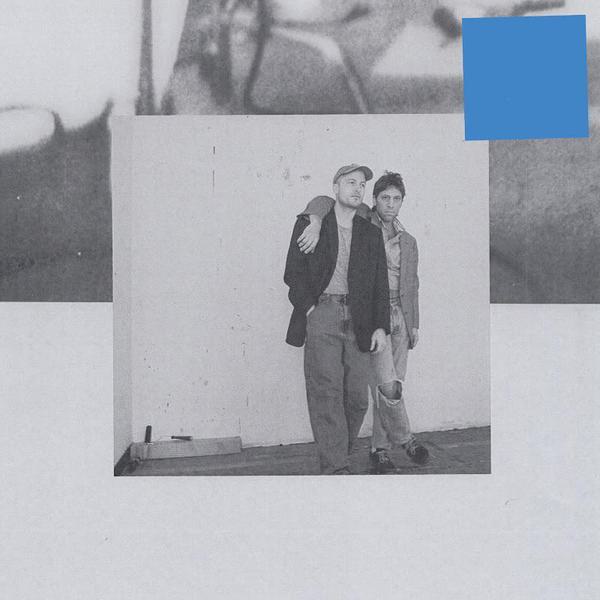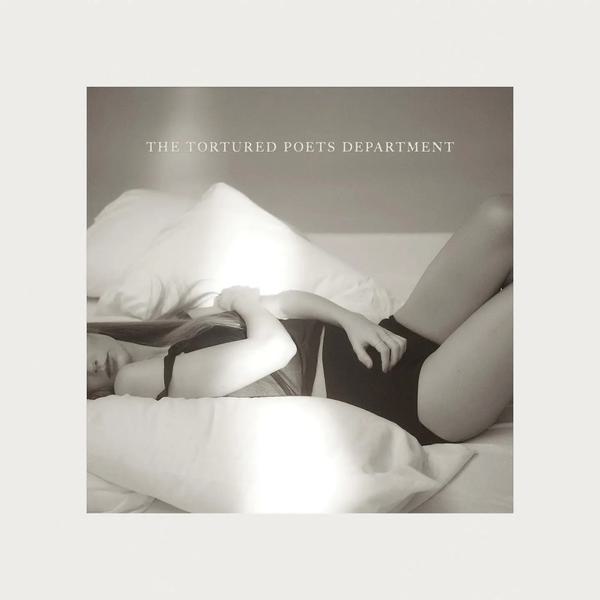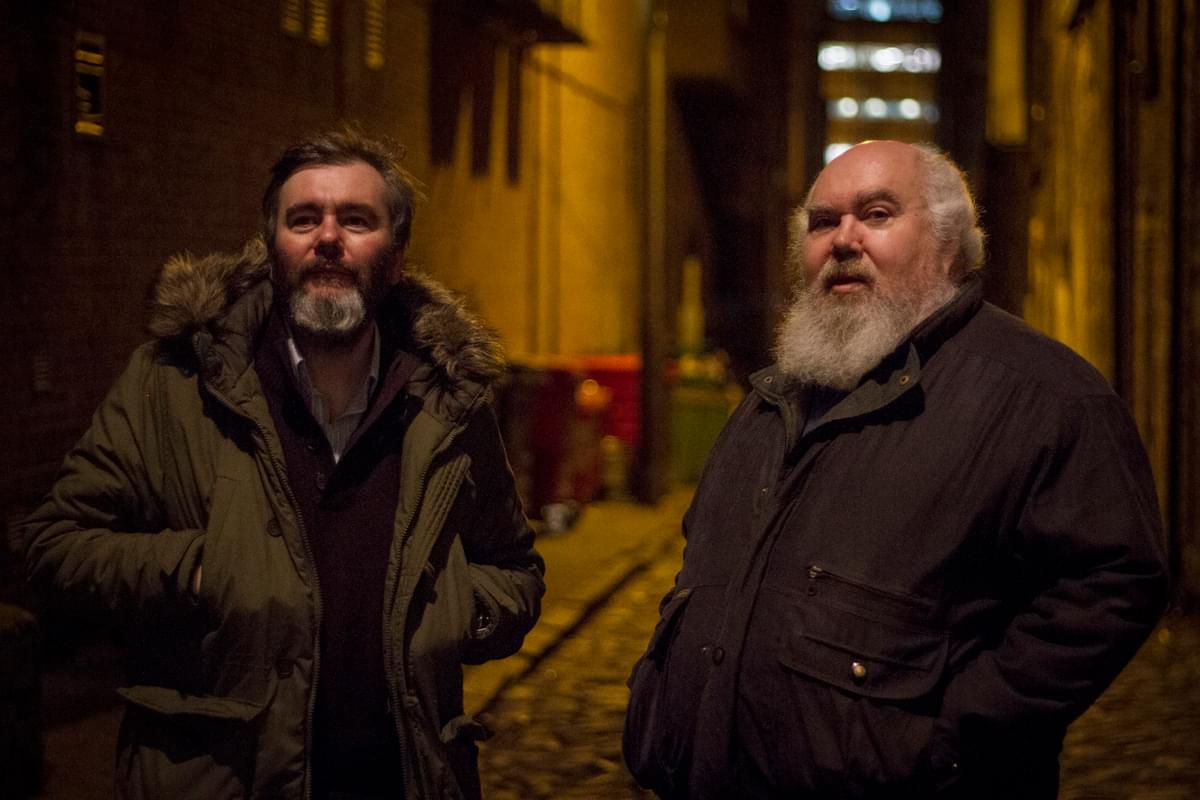
"Everything changes, why aren’t we?": putting the world to rights with Bill Wells & Aidan Moffat
As I’m preparing to leave to meet Bill Wells and Aidan Moffat in a Glasgow boozer, I read the news that a city institution by the name of The King’s Café is to close its doors after nearly 120 years of serving the hungry masses. No more is the best place to find a roll and fritter in the centre of town, replaced by yet another burger place taking the number well beyond saturation level. It makes me reassess where I want to start the interview about the duo’s new album The Most Important Place in the World.
Instead of at the beginning of the record, I ask Aidan and Bill about the last song, “We’re Still Here”. Moffat gruffly lists places long since closed down, comparing their longevity to a relationship that’s still going in spite of the city changing (“the myopic optician couldn’t see how he could fail…the barber’s blades are blunted, but we’re still here”), but the meaning is questionable. As much as it is a lament to the loss of what used to make a city identifiable before high streets became filled with all the same shops, destroying small businesses, the song also acts as a perfect encapsulation of the rest of The Most Important Place in the World – yes, the relationship is still going…but is it for the best?
“Aye, see it’s interesting,” says Moffat, taking a drink from the first of our many beers this evening. “The lyrics for that can be taken two ways. Either it’s talking about how everything changes except us…or everything changes, why aren’t we? It’s not meant to mean one thing and I’m not sure what it means!” He further explains that “I thought of it as a financial crisis love song. As the city spoils and decays something is still going, but is that necessarily the right thing to do?” Is it an appropriate ending to the album? “I wanted it to end with a question,” says the singer. “I don’t like tidy endings. Tidy endings are terrible!”
Now that’s out of the way, I return to the beginning. The Most Important Place in the World comes three years after the first Bill Wells and Aidan Moffat album Everything’s Getting Older won the inaugural Scottish Album of the Year Award – something of an achievement given Moffat’s work with Arab Strap had never won him a single thing, and yet here he is with a veteran jazz musician in the form of Wells who was ostracised by the jazz community thanks to his willingness to work with the likes of Moffat, The Pastels and Future Pilot AKA, making records that backed up critical acclaim with long-overdue awards. With the first record – jazz music of sorts, but taking in balladry and plenty of Moffat’s darkly lyrical take on the world - taking shape over the space of eight years, I ask the bearded pair if things came together any quicker this time around? “Well, one song existed before the whole album was started but most of the rest of the songs were reasonably close together this time.”
“It didn’t feel that way!” interrupts Moffat, laughing.
Wells: “No, not really! There was still the same time between I suppose; we started working on it as soon as we finished the first album.” Moffat explains that the duo worked on album number two as often as they could: “The thing was, we weren’t working on the first one constantly over four years,” he says, “it was just when we had time. But for this one wanted to have the time to dedicate to it….”
Wells: “And we kind of knew what we were doing with it as well. The first one, we didn’t really know.”
Moffat: “This record is also the first where I’ve ever done pretty full demos of the songs…..”
 I ask what the process differences were between the first and second were, and Wells explains: “Well, with the last one I’d give Aidan something and the next thing I knew there’d be a song. Where with this one there was more to-and-fro, swapping of MP3s...it was a more gradual building up of things.”
I ask what the process differences were between the first and second were, and Wells explains: “Well, with the last one I’d give Aidan something and the next thing I knew there’d be a song. Where with this one there was more to-and-fro, swapping of MP3s...it was a more gradual building up of things.”
Moffat explains that what comes first is not his lyrics, but whatever snatches of music he’s given by the pianist. “It’s the music; Bill must have given me about fifty bits of music for me to sift through and find out what I thought would or suited what I wanted to do,” he reveals. “I’d maybe do a wee demo and send it back, and we built it from there…and that’s why I think it works a lot better than the first one because a lot of the times [when Moffat would send something back] Bill would have to write a new part for the song, but this time he knew what the songs were about, he knew the feeling – on the first album a lot of that was done on the hoof. I’d do the vocals and a lot was added after – we were a lot more certain of what was happening when we went to the studio this time.” Wells adds: “I just really try to give Aidan as much as I can and hope. I find it difficult to judge what Aidan is going to take from it…like ‘Dinner Time’ on the first album, that was just part of –“
Moffat: “there’s a good four notes in that!” Both men dissolve in a fit of laughter, united in their surprise of how the sparse track from Everything’s Getting Older ever came together. Wells continues: “But you know, sometimes things like that are better because there’s so much space to it….so it’s not necessarily having a great tune or anything, it’s just having lots of good ideas.”
Good ideas. The Most Important Place in the World takes its name from an IKEA advert (minus the word “home”) and the record finds Moffat and Wells debating where the heart is. Is it at home, surrounded by family and apparent domestic bliss…or is it out on the streets of the city – described on more than one occasion as a woman with a certain appeal that’s difficult to turn down – where we can drink, dance, eat and fuck. While album one found the duo coping with getting older, we find Moffat constructing stories around this same ageing character who’s torn between home life and drinking and carousing until 4am. The accompanying music displays a wider palette than first time around, with the jazz being joined by Bacharach-esque lightness, grimy electronics and even a touch of gospel, meaning a wider cast of musicians including the strings of the Cairn Quartet, a group with whom Moffat has worked with before: “Once or twice, aye….they always seem to be close by,” he says, laughing. Having more of an idea meant that Moffat and Wells knew what songs would sound like, and what and who they would need to become fully-formed. Moffat explains: “Again, it’s because we knew what we wanted the songs to be like, so you know what the palette you require is before you go to the studio. The one with the choir [‘Street Pastor Colloquy, 3AM’] was always gonnae have a choir on it…it wasn’t last minute, and it’s the same with the strings. And the saxophone as well on ‘Lock Up Your Lambs’ that John plays…I had this wee sample of avant-garde sax that I just looped – we knew what we needed and Bill knew exactly the guy to do it.”
 As Aidan has mentioned “Street Pastor Colloquy, 3AM”, one of the highlights on the album and featuring the Glad Café choir, we discuss that song for a few minutes. I say to Moffat that it’s amusing that a song attacking religion, and in particular Glasgow’s team of “street pastors” who patrol the streets of the city at the weekend like self-appointed religious vigilantes, preying on the drunk and the homeless (“God only wants you when you’re sad and lonely”, goes the lyric), takes the form of a gospel song: “Yeah, yeah, it’s a secular gospel song,” he agrees. “I was trying to start a new genre! I mean, that was quite full when I first heard it because Bill had most of the words for the chorus at the end.” I’m taken by surprise at this revelation, that Wells wrote some of the lyrics for the song, and Bill tells me more: “I had a dream…actually a few things on this record were dreams,” he admits. “I was watching a TV programme and there was a gospel choir on it, singing words kind of similar. It was very clear and I thought while I was watching it – still asleep – ‘why do they always sing this tune?’ and then I woke up! Generally my dreams aren’t as fully formed as that; sometimes it’s just a wee melody when I wake up but occasionally I’ll get a wee scenario and I can hear it very clear. The melody for ‘Far From You’ was a dream too…”
As Aidan has mentioned “Street Pastor Colloquy, 3AM”, one of the highlights on the album and featuring the Glad Café choir, we discuss that song for a few minutes. I say to Moffat that it’s amusing that a song attacking religion, and in particular Glasgow’s team of “street pastors” who patrol the streets of the city at the weekend like self-appointed religious vigilantes, preying on the drunk and the homeless (“God only wants you when you’re sad and lonely”, goes the lyric), takes the form of a gospel song: “Yeah, yeah, it’s a secular gospel song,” he agrees. “I was trying to start a new genre! I mean, that was quite full when I first heard it because Bill had most of the words for the chorus at the end.” I’m taken by surprise at this revelation, that Wells wrote some of the lyrics for the song, and Bill tells me more: “I had a dream…actually a few things on this record were dreams,” he admits. “I was watching a TV programme and there was a gospel choir on it, singing words kind of similar. It was very clear and I thought while I was watching it – still asleep – ‘why do they always sing this tune?’ and then I woke up! Generally my dreams aren’t as fully formed as that; sometimes it’s just a wee melody when I wake up but occasionally I’ll get a wee scenario and I can hear it very clear. The melody for ‘Far From You’ was a dream too…”
Moffat: “Was it, aye? I didn’t know that….that was the Elsa one originally?”
Wells continues: “Yeah….I’d woke up and had a very simple melody in my head. It was the first birthday of Abbie’s, the viola player on the record, baby and I recorded it that day and gave it to her as a wee present. It seemed to me that the song should be for a child, you know?” Moffat adds a little more detail to the story of this song: “I think that was the condition of us being able to use it on the record, that it had to have something to do with a child or I wasn’t getting to use that one!”
A song like “Far From You” takes its position as one of the “domestic bliss/boredom” tracks on The Most Important Place in the World, alongside “Vanilla” and “In Any Other Mirror” which are respectively songs facing up to the boredom and routine of a relationship, or an acknowledgement of a pairing who are just perfect for each other. There are songs like “Lock Up Your Lambs” and “This Dark Desire” which sing of the lure of the city and its feminine charms with lines like “this is the soul of the city / her glories stripped / her passions laid bare”, and then a track like the opener “On The Motorway” (where we find the album title) which acts as the opening gambit of ambiguity for the record – a family car journey punctured by one expression of “baby, I’m bored” and then thoughts of escape to the city, with the singer stating “her doors are open / her legs are spread”. I ask Moffat if this was the intention, to set up the theme immediately. “A question again….there’s no answers to it, really” he says. “It opens it up to being a question; once you know what it means when you hear the first song, you’re not quite sure how or what…..I need to be careful when I explain these things because I don’t want to explain them too much….” Just as Moffat tails off, he changes his mind: “D’you know what? Disnae matter!”
But I think it does matter. It’s a battle that everyone in a relationship faces, whether or not to commit and settle down or to keep being drawn outside to the visceral, physical thrills of the night – and it’s something Moffat agrees with: “I think it’s the draw,” he affirms. “It’s about life, love…it’s fucking hard work! I mean, maybe it’s the midlife crisis record…but I suspect the midlife crisis record is going to be a lot heavier than this! I feel that’s on its way…” I say it’s a record that fits in very well with Moffat’s previous work, but with the youthful exuberance of the Arab Strap days replaced by someone who’s ageing and less sure of themselves….”I’m sure you’ve heard records of mine before and they’re not about happy endings,” begins Moffat, “and maybe the problem is just me – maybe I’m difficult to live with but I don’t think that’s true. I think everyone has the same feelings; you have to work out what you want most, you have to work out what life suits you best – and I still don’t fucking know. You just have to try and balance these things out. Sometimes you balance them in favour of one things, and some days it’s in favour of the other thing…”
Wells admits it’s a feeling he also battles with: “Aye, certainly! I’m kind of glad Aidan is still raging against the…” Moffat interrupts: “The happiness! Raging against the romance…there’s the next album!”
Moffat finds himself as a man in a relationship, and with two children – one of whom is responsible for the album artwork – so to some extent he’s living the duality at play on The Most Important Place in the World. So does he identify with the behaviours of the characters on the record? “Aye, aye….I think so,” he agrees, “but I think everyone needs an escape from the world every now and again. I suppose on the record that’s what the city represents, it represents an escape from responsibility and rules…” Moffat goes on to explain his take on what domesticity can do to someone, if they’re not careful: “Everybody’s got a friend who’s been pummelled into domesticity, and you never see anymore. And when you do see them they just look really fucking sad! I think since I had children I actually go out more! Life was quite rosy up until then!” So is home life particularly difficult for him to participate in? “Don’t get me wrong it still is [rosy], I totally fucking adore my children,” affirms Moffat, “but I find that you make more of a point of going out. Like, the romance leads up to the family, and when that arrives it’s like ‘fuck's sake, I need to get out of here for half an hour!’ It’s hard work….love, romance, whatever, it’s hard work. But that’s the stuff I’m interested in, the hard parts. I could easily write a record about being wonderfully fucking joyous about being in love, but it’d be boring! Who wants to hear that shit? Unless it’s at a disco at half two in the morning I don’t really want to hear that sort of thing….I’ve always been drawn to darker stuff; that’s where the meat is, that’s where the feeling is.” I say at this point, though, that when Aidan has a night in, we can see on Twitter that he loves a pop song or two….so how does that fit in with his worldview? “All my favourite songs are sad songs,” he says. “I’m trying to think of a happy song I genuinely enjoy. I’m a big ABBA fan, I like songs to be happy but….mind you, ‘Winner Takes It All’ is the one listen to most, to be fair! That’s maybe not the best example…”
What works so well about The Most Important Place in the World is how the duality plays out; for every song about a night on the town, there’s a song about a relationship, a child, a night in. And it’s matched in the pace of the music: the tender moments are saved for behind closed doors, while the pace is picked up for when we find the protagonist three sheets to the wind and trying to impress a lassie half his age. Yet Moffat and Wells initially had a different idea for the album format, as the former explains: “Well, it was originally going to be two albums. We did have a plan where it was going to be two eight or nine track records, and one was going to be full-on about going out and the other was going to be the tender songs.” So why didn’t that happen? “I don’t know why we didn’t do it,” says Aidan. “I think, especially today, it’s hard enough to get people to listen to one fucking record all the way through so trying to convince them to listen to two…” Wells chips in, revealing “I think what worried me about that idea was that there wouldn’t be the contrast of the tracks sitting next to each other. I think this makes it easier.” Moffat runs with the theme of editing, and explains why the album works as a single piece: “I was writing a short story for somebody the other day,” he begins, “and the best thing about that is when I start to cut away at things, cut bits out – and that doesn’t affect it, other than making it better. And it’s the same with a record, it just became apparent quite quickly that there was a focus if we just did it as one record. It told a better and a more varied story than if we had gone for the prog rock angle!”

Over the course of his musical career Aidan Moffat has never shied away from being as open as possible about all aspects of human life – whether it’s directly related to himself or not. The amusingly bland descriptions of perfunctory relationship sex on “Vanilla” (“it begins the with usual kiss / then comes the usual touching”) might not be personal to him, but it does cut to the quick of how some couples treat certain aspects of their lives: “You know, there probably are perfect couples out there,” says Moffat, “but I’ll just never be part of one! And I don’t think I know anyone who has ever been part of one. Part of it is when you have children, you have to pretend that it’s alright, everything’s alright – and that makes it all harder…and I’m not very good at that. I’m a grumpy bastard to start with! I’m not very good at hiding my temper…” So how does Moffat’s other half find all the public sharing? “She’s an art school graduate, so I think she understands the value of using life in these things,” he states. “She’s never mentioned a problem with it, and the only happy album I’ve ever made was that Aidan Moffat and the Best Ofs one – and all the happy songs were about her so I think I’ve made up for it. It’s not directly about her though, and it’s not all directly about me either…when I was 23 I was determined that everything I wrote was going to be absolutely truthful to every single fucking element, and I felt I was lying to myself otherwise. But as you get older you realise that isn’t what makes a better song. If there’s something that’s going to make it a better piece of work then fuck art, fuck yer rules! There’s no point in restricting yourself….which isn’t to say it doesn’t all come from an emotional truth, of course it does – you need to live these things to write about them.” Does Moffat every worry that people will start to believe that all these stories have each been lived out by the singer, that they are listening to the legend become true? “I don’t think that’s true at all,” he replies firmly. “Liz Lochhead [the poet and ‘Makar’], I did an interview with her once and she put it very succinctly: if you write about yourself, you’re writing about everyone. And it’s true; there’s nothing on this record that’s entirely unique to me. It’s the same with all the Arab Strap records, they sound very personal but they’re really about things everybody’s dealt with….I wouldn’t write it if they were just about me because, actually my life’s pretty fucking boring!”
 Moffat goes on to explain that he doesn’t believe that he is writing about anything different to what he wrote in the early days of Arab Strap: “It’s fundamentally about the same thing; it’s the same as what I wrote with Arab Strap – it’s just there’s a family on it now. It’s about being good, and staying good. And that becomes harder as you get older….it becomes harder when you have a family. Anyone that’s been in a relationship or a marriage for ten years is going to struggle with each other sometimes. No one is that fucking happy all the time, it’s impossible and if you are….then you’re not living life. That idea that you stick within your own wee bubble and you don’t think about anything else…..”
Moffat goes on to explain that he doesn’t believe that he is writing about anything different to what he wrote in the early days of Arab Strap: “It’s fundamentally about the same thing; it’s the same as what I wrote with Arab Strap – it’s just there’s a family on it now. It’s about being good, and staying good. And that becomes harder as you get older….it becomes harder when you have a family. Anyone that’s been in a relationship or a marriage for ten years is going to struggle with each other sometimes. No one is that fucking happy all the time, it’s impossible and if you are….then you’re not living life. That idea that you stick within your own wee bubble and you don’t think about anything else…..”
So while Moffat returns to writing when faced with that battle of staying good, I wonder does Wells take the same comfort from writing music, being in front of the piano? “Aye, I think it’s always been a place to go to for me,” he confirms. “Some kind of refuge….although it is sometimes a bit of a double-edged place to go as it can drive you as nuts as what sent you there in the first place!” But Wells put in place a plan for The Most Important Place in the World which enabled him to avoid going nuts: “For this record I deliberately made time; there were about twenty ideas that I gave Aidan which were all done within the space of three months with the deliberate intention of giving them to him. I realised that if I really concentrated on doing that, I did more of them.” And did that work better than waiting for the ideas to come? “Things will come naturally to me every couple of weeks or something,” says the pianist,”but I discovered if I actually concentrated I wrote more and more, and things were clearer, too. I’ve only relatively recently realised this. I seem to think of things when I’m asleep that turn out to be more advanced. [we veer into a discussion about the lucid dreaming machine, and how this might aid Wells’ dream writing]...I had a dream I joined Arab Strap!”
Moffat: “Well you did, for about two days…” Both men share a prolonged chuckle at this memory, hinting that this experiment might not have been quite as successful as this current collaboration.
We end with thoughts of touring the record: “It’s just getting a band together,” says Moffat. “We need a big band to do it so I’m waiting to see. We’re looking at festivals because I’m not especially keen on doing long tours and coming back skint!” There is a temptation to wait until the public has spent some time with the duo again, with Moffat saying “we’ll do a few gigs here and there hopefully. We thought it would be sensible to wait until it was streaming and more people have access to it. I kind of like people being familiar with the record before coming to see us, knowing the songs, I enjoy that…a bit of breathing space once the album’s out will be good.” And finally, twenty or so years down the line from when Arab Strap started, with one award at last under his belt, does Aidan Moffat care what people think about his music? “Well I’ll be fucking angry if folk say that it’s shit! Och, I care less about that as I get older but I’m also confident in what I do in general nowadays. Ten years ago I’d be a fucking nervous wreck after a bad review!” It’s a safe bet Moffat will be sleeping easy this time around.
Bill Wells & Aidan Moffat were photographed for Best Fit by Matthew McAndrew.
The Most Important Place In The World is out now on Chemikal Underground. The duo are set to embark on a short UK tour at the end of May - details and tickets here.
Get the Best Fit take on the week in music direct to your inbox every Friday

Sinéad Harnett
Boundaries
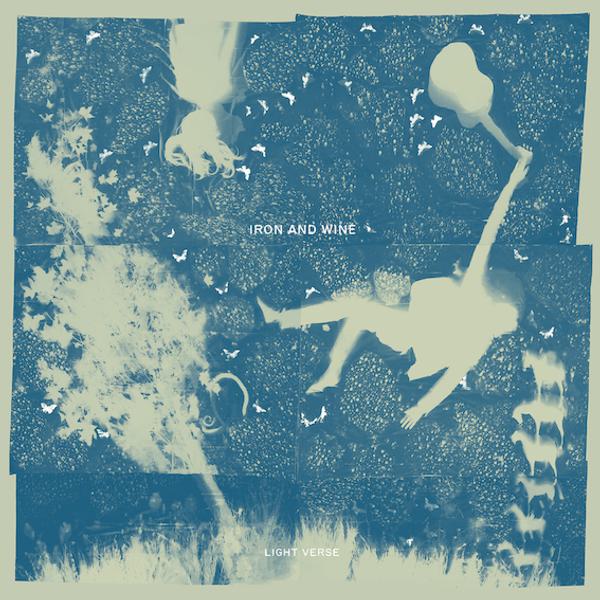
Iron and Wine
Light Verse
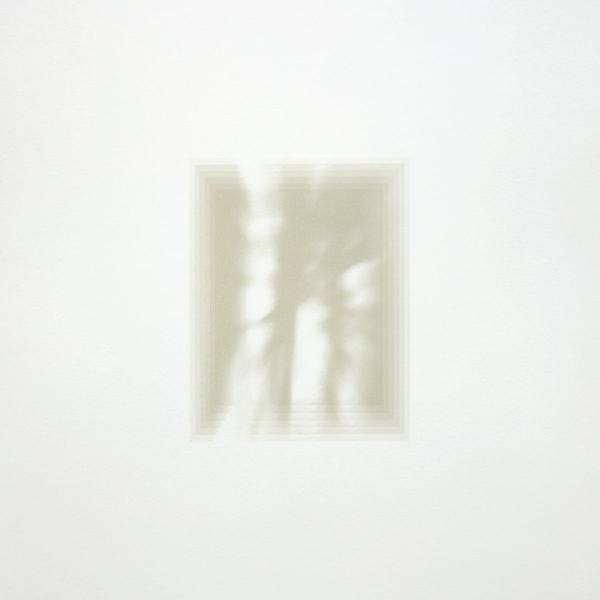
Fat White Family
Forgiveness Is Yours
